What's The Difference Between Earned Links and Built Links?
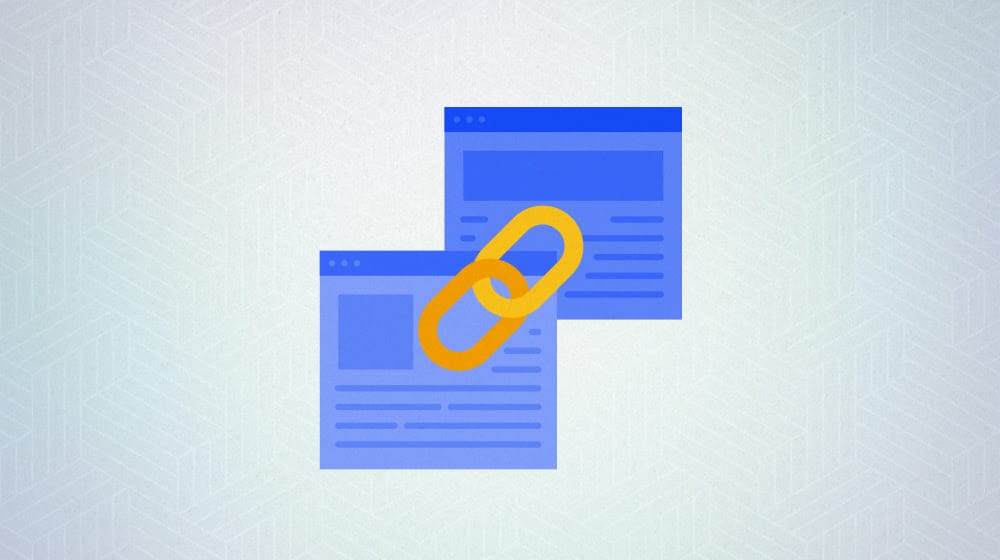
Links are the core of any good SEO strategy, but they're also one of the most difficult parts to get right. Sure, there are a million ways to go out and create links that point towards your site. PBNs, directory submissions, aggregators, guest posting, sponsorships, blog comments, and social media all exist and work to varying degrees. The trouble is, as links that you put the impetus behind creating, they aren't really that organic.
On the other hand, when you're checking your backlink profile and find that someone you don't know has linked to you from a site you've never seen before, and it's giving you a decent little SEO boost, it feels great, right?
Link building and link earning are similar but slightly different strategies, both with the end goal of a link pointing to your site. They're both strategies you need to be using, but one is talked about far more than the other. So, what's the difference, and how can you do both?
What is Link Building?
Link building is the act of going out into the internet at large and taking actions to create links that point back at your site.
This can be done in many different ways, ranging from the spammiest, shadiest techniques all the way to completely legitimate outreach, and with or without monetary investment.
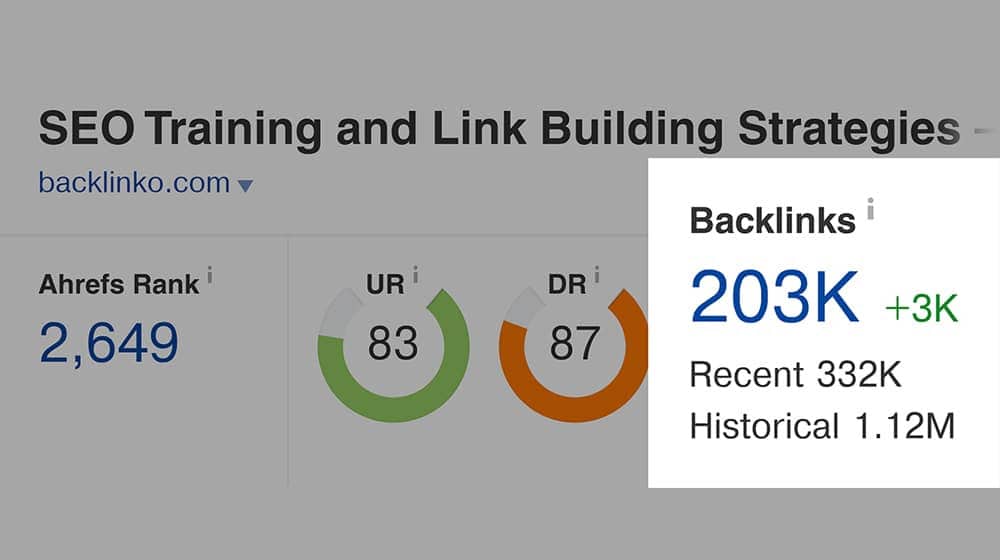
For example:
- Spammy: Setting up a bot to leave comments on blogs with a link.
- Shady: Leaving "organic" blog comments yourself with a link.
- Boring: Submitting your site and its content to aggregators and directories.
- Better: Reaching out to bloggers and offering relevant content and link swaps.
- Good: Networking with content creators and partnering up for guest posts.
- Costly: Paying for sponsored content with links.
- Shady, two: Paying for sponsored content with links but not mentioning it's sponsored.
Google, of course, has put a lot of time and effort into categorizing links, figuring out how exploitable they are, and devaluing certain kinds of links. For example, a lot of social media links and blog comment links are SEO-neutral; as long as they aren't clearly spam, they won't hurt you, but neither will they help. Conversely, editorialized links in body content on blogs can be very valuable unless they're intentionally flagged as nofollow links or as sponsored content links.
Regardless of the technique you use to build these links, that right there is the key: you are going out and building the links. Whether that means pasting a URL into a submission form or building a relationship doesn't matter.
What is Link Earning?
Link earning has been known under many different names. One of the more descriptive is "passively-obtained natural backlinks."
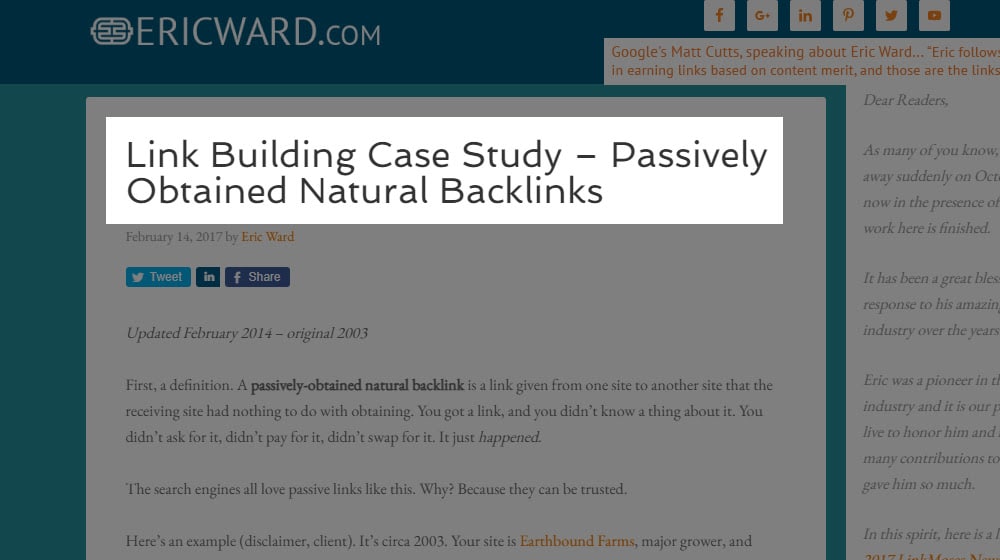
As a blogger or content creator, you don't just write a bunch of text with some formatting and call it good, right? Of course not. When you mention a topic that you've covered elsewhere on your site but you don't have space to re-cover, you link to that post. When you cover a topic that you're bringing from somewhere else, or where there's a discussion on a deeper issue that you aren't digging into or the source of a piece of useful data you cite, you link to that other site. Maybe it's a Reddit thread, maybe it's another blog, maybe it's a case study, or a government site with resources, whatever.
The point is that you have a need to include additional information or context, so you do so by linking to a source that provides it. The source didn't approach you about including that link, right? That means, for them, it's a link they earned.
How do you earn links? It's all about creating good, useful, unique content and making sure it gets in front of the eyes of the right people.
That last step might sound like it crosses the link into link building, but there are two key differences. The first is that you don't have to be the one doing the work to get it out there. Social media algorithms and Google search results can do that for you. The second is that even if you do proactively go out and show your content to people, it's more of a "hey you might be interested in this" sort of way, with no mention of links and no obligation involved.
What Are the Biggest Differences Between Link Building and Link Earning
In a way, you can consider the difference between building links and earning links to be similar to the difference between paid traffic and organic traffic. One comes with effort and investment to get the result (traffic/links), and it dries up when that effort stops, while the other may be slower but is passive and long-term.
One of the biggest and most important differences is that link earning has no potential for harm. Link building can be done in a variety of different gray- and black-hat ways, which can earn your site a penalty if they're discovered. Link earning, meanwhile, is, at worst, entirely neutral. This falls into the same categories as negative SEO; the only way you can be penalized for links pointing at your site is if you're the one going out there and spamming them, and Google can tie it back to you in some way.
Another significant difference is link earning generally does not involve money. Link building can be done with paid sponsorships and other forms of paid content, including under-the-table payments (even though those are technically against Google's SEO rules.) Link earning still involves money in the sense that creating excellent content and promoting it costs money, but that's all the stuff you're going to be doing regardless. Earning links from it is a bonus.

Speaking of content, another important difference is that content that earns links needs to be great. After all, nobody is going to link to content that doesn't serve some kind of purpose for them. If your content lacks any unique value, it doesn't have any reason to earn links. You can build links to mediocre or even garbage content – it happens all the time – but that kind of content virtually never earns links.
While all of these might make you think link earning is universally better, there's one area where that's not necessarily true. Link building is more targeted and has a better average value. Earned links come from whoever finds your content and decides to link to you. That might be the personal Forbes account of an industry leader or one of the personal blogs of business blogs of the top 10 sites in your niche. Or it might be from some no-name blog you've never heard of that gets 50 hits a month. Link building might not have the highest highs – you're unlikely to be able to easily network to get that Forbes link – but it also doesn't have the lows because you simply don't target them.
One final thing before we move on: link building and link earning are not mutually exclusive. You can build links to content, and that content can earn links. In fact, building links to great content is one of the best methods you have to get it in front of an audience of people who will link to it organically. It can be hard for content to earn links if you don't put some effort into building seed links for it.
Which is Better: Building or Earning Links?
Neither. Both. It's wrong to think of this as a direct comparison.
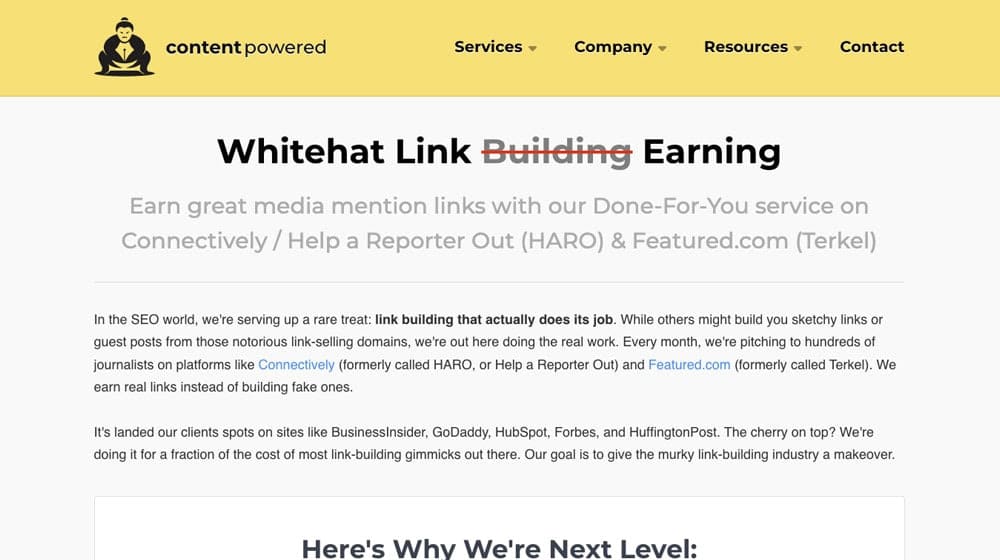
Every few years, Google makes some change or another that makes people cry that link building – either some specific strategy or the practice as a whole – is dead. My favorite example is the OG Google SEO guru, Matt Cutts, telling everyone to "stick a fork in it" and that guest blogging had officially become too spammy and was done for. That was 2014, ten years ago; surely guest posting is a failed technique by now, right? However, it was never done; it was just the spammiest people abusing it who were cooked; everyone else could still do it right.
Really, they're two sides of the same coin.
You actively go out and build links, to build a better SEO position for your site as a whole and to get your content in particular in front of a wider audience. That effort rewards you with other people discovering and linking to that content over time. One feeds into the other.
It's also almost essential to have both. It's relatively rare that a site can earn links without at least putting some effort into promotion. That promotion might be able to be just paid advertising or something similar, but link building has some of the best bang for your buck.
Tips for Better Link Earning
If you want to earn more and better links, one of the best things you can do is get to work on good link-building. That means everything from using the right tools and platforms to investing in connections and relationships.
If you want to earn better links, though, there are a few other things you can do.
Focus on creating excellent content.
Perhaps the single most important element of earning links is making sure your content is worth linking to in the first place. That means creating the best possible content you can on a topic. I always go with the 10x rule; I set high standards for my content, and I strive to create something better than what's already out there, no matter what the topic is I'm covering.
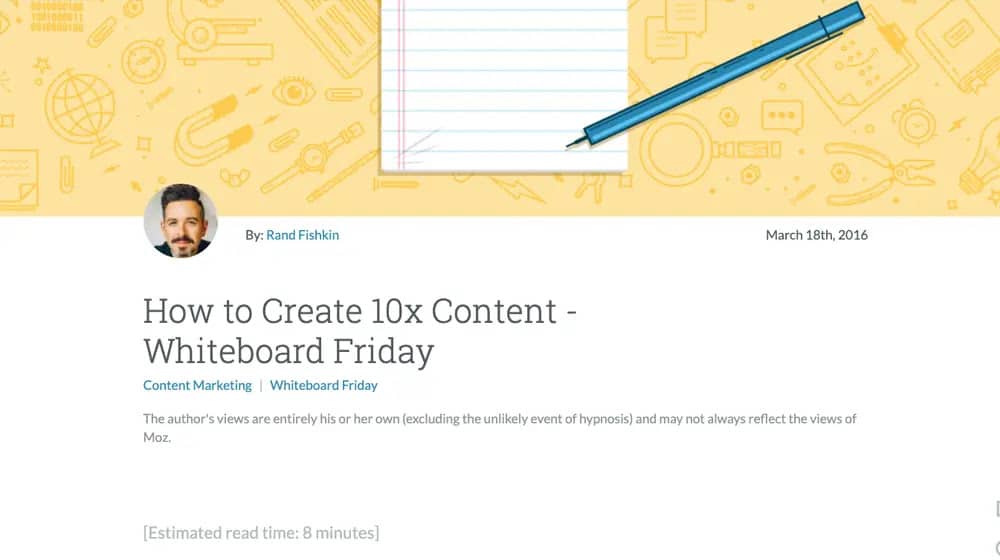
Sometimes, that's a lot harder than other times, but that's half the fun of blogging, isn't it?
Build out content and resources with topic clusters.
A great way to help make sure you're going to earn links for a topic and keyword set is to create content clusters. Content clusters are "packs" of content, maybe 3-10 blog posts, all about roughly the same subject. Each post is unique, and they all capture different search intents, levels of detail, and angles for the discussion, but they're all related to the same core topic – such as link building.
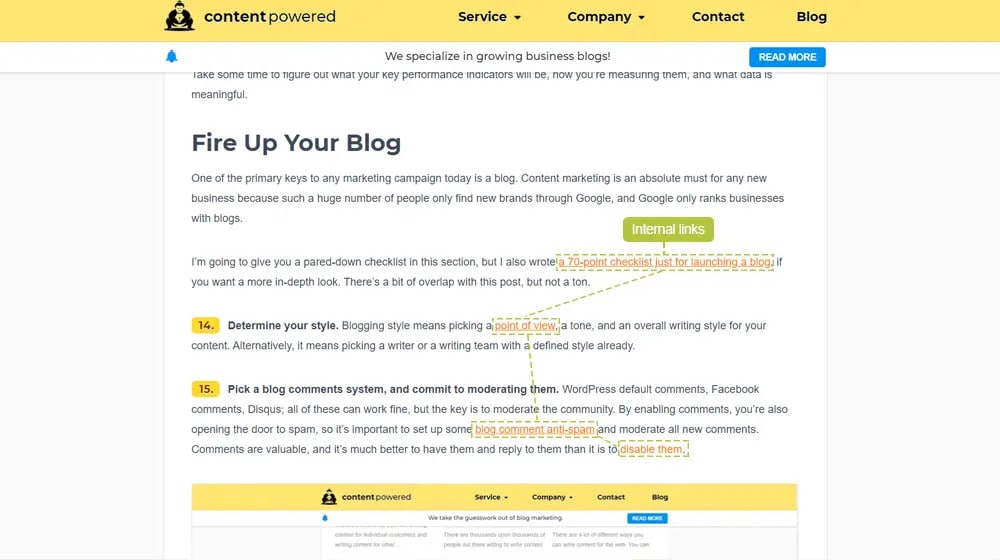
Content clusters are very powerful and a great way to build interlinked resources into your blog.
Make sure every post has something unique and valuable included.
One of the biggest issues with content marketing today is how much content is already out there, with more being published every day. This is only getting worse and worse, as AI generation tools allow people with little or no knowledge of a subject to publish dozens of posts about it overnight. Fortunately, the biggest limitation of AI is your biggest advantage.
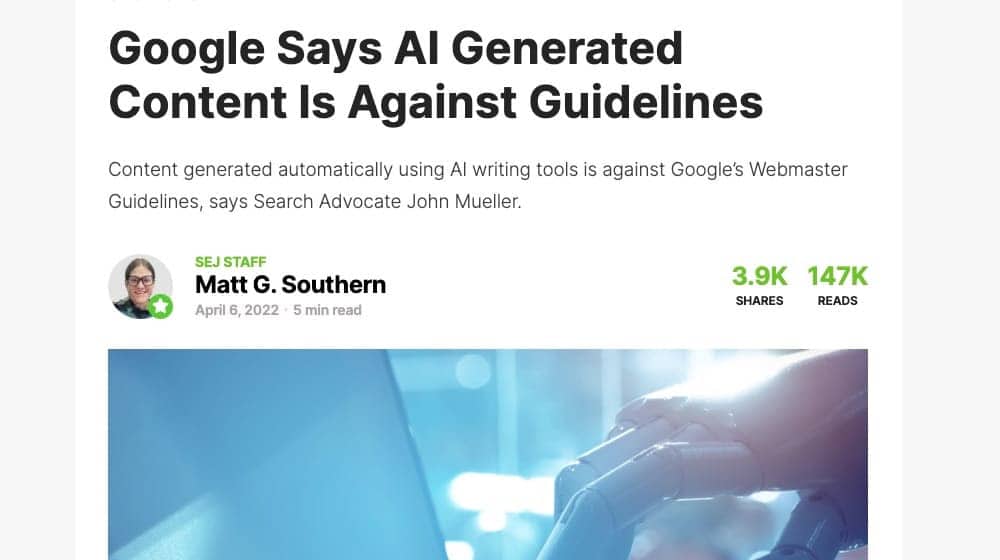
AI can't leverage critical thought or unique points or information. By definition, AI is derivative of the works it's trained on. You can put multiple resources together in unique ways, come to unique conclusions, support your conclusions with sourced data, and even provide unique data yourself. All of this helps you stand out as something valuable and worth linking to.
Know who your audience is and match your content to search intent.
You don't earn links from Joe Random; you earn links from content creators who are interested in the topics you cover and who recognize the unique value you provide in your content. You can only do that if you're able to reach those people, and that means understanding and capturing user search intent with your content.
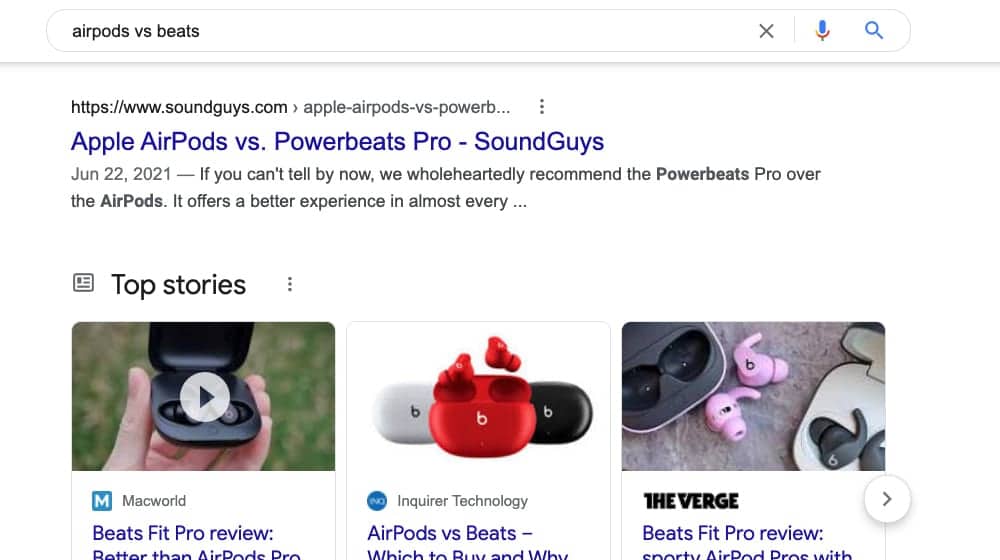
This is also a huge part of Google's recent Helpful Content Updates, so it's even future-proofing against further algorithmic changes.
Don't neglect technical SEO.
Finally, remember that a huge part of the way people will find your content is through Google, which means you need to make sure you can rank well in the search results. All of the technical SEO, from core web vitals to pagespeed to meta information to schema and more, is all important.
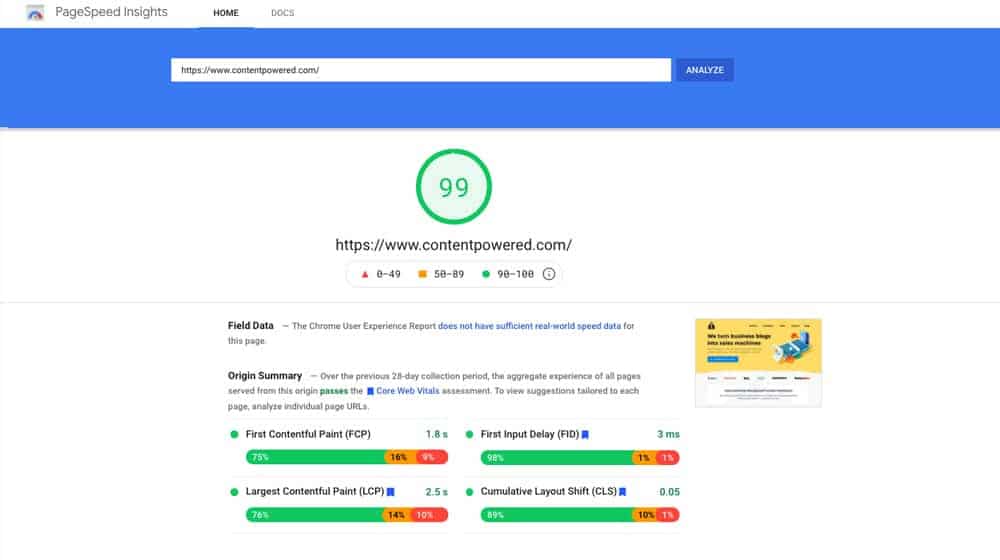
Anything that holds you back can potentially mean you miss the eyes of the people who would link to you, and that's exactly what you can't let happen.





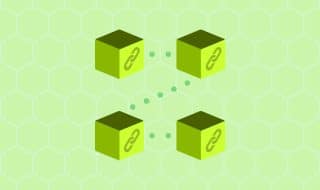
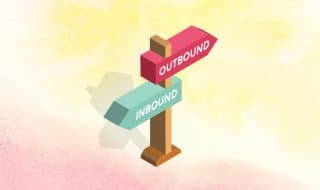



Comments